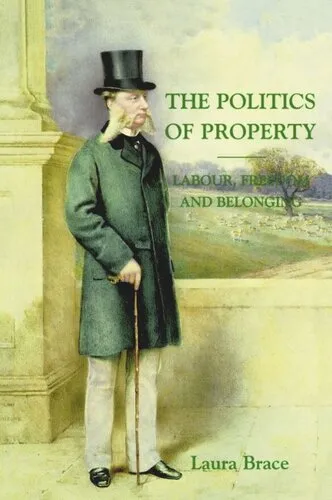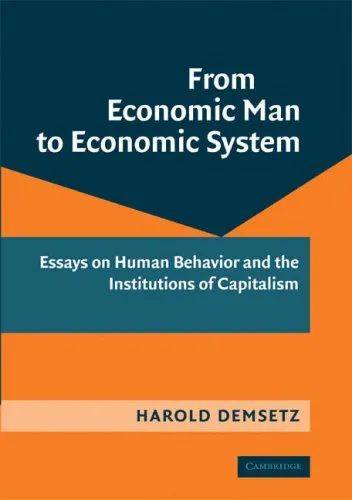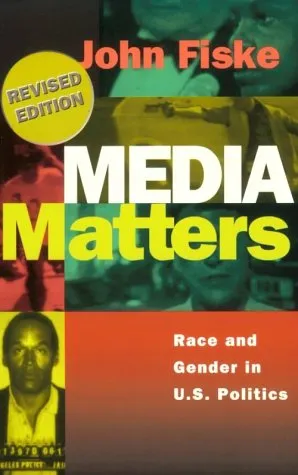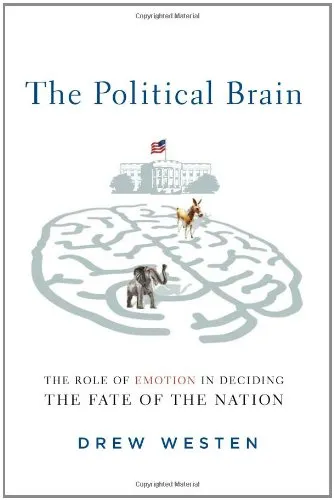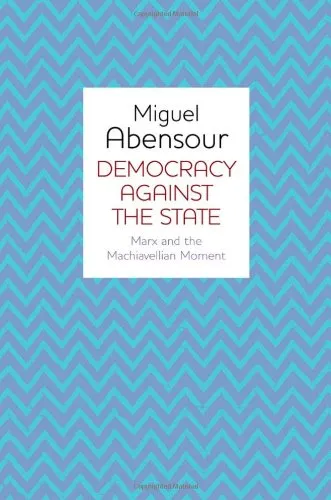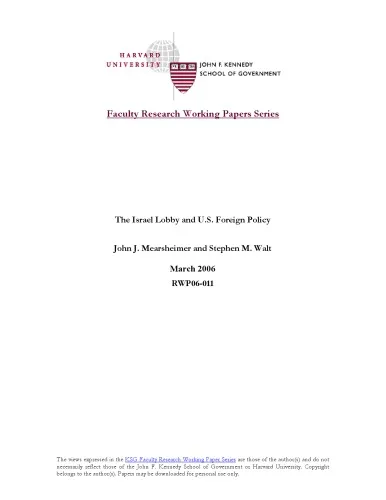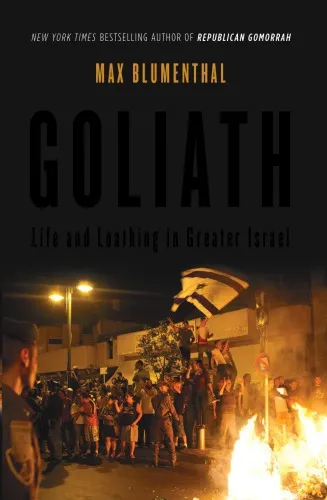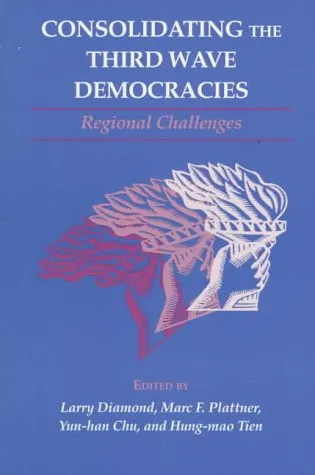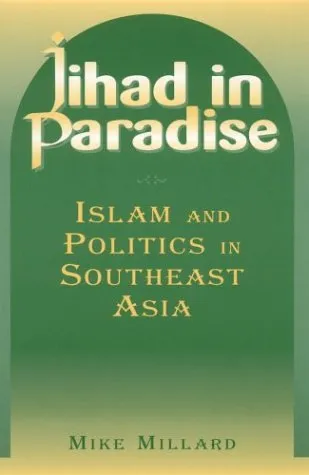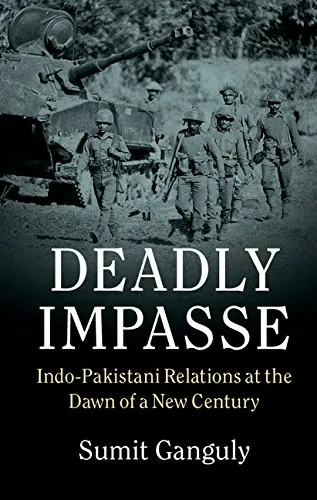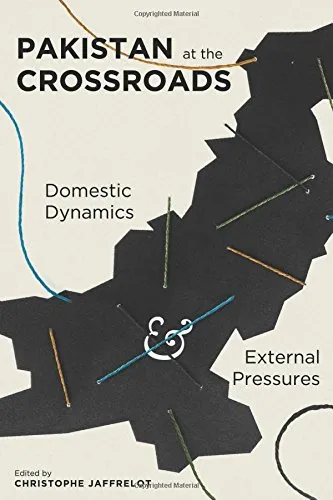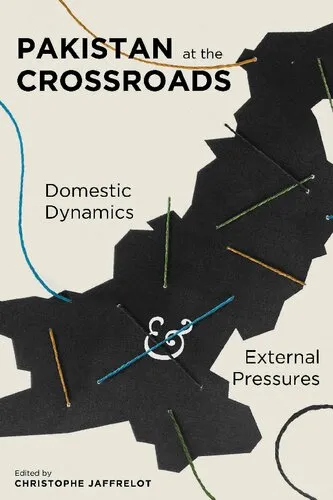The Politics of Property: Labour, Freedom and Belonging
4.0
بر اساس نظر کاربران

شما میتونید سوالاتتون در باره کتاب رو از هوش مصنوعیش بعد از ورود بپرسید
هر دانلود یا پرسش از هوش مصنوعی 2 امتیاز لازم دارد، برای بدست آوردن امتیاز رایگان، به صفحه ی راهنمای امتیازات سر بزنید و یک سری کار ارزشمند انجام بدینکتاب های مرتبط:
معرفی کتاب "The Politics of Property: Labour, Freedom and Belonging"
کتاب "The Politics of Property: Labour, Freedom and Belonging" نوشته "Laura Brace" اثری ارزشمند و جامع است که درک ما از مفاهیم مالکیت، کار، آزادی و تعلق را در بستر تاریخی و سیاسی به چالش میکشد. این کتاب با بهرهگیری از تحلیلهای فلسفی و اجتماعی، به بررسی رابطه پیچیده میان مالکیت و هویت میپردازد و خوانندگان را به تفکر عمیقتر درباره معنای واقعی مالکیت و تأثیرات آن بر جوامع و افراد وادار میکند.
خلاصهای از کتاب
این کتاب در چندین فصل موضوعات کلیدی مانند مالکیت بهعنوان یک حق، کار بهعنوان منبع ارزش، و آزادی بهعنوان یک اصل بنیادین انسانی را تحلیل میکند. Brace نشان میدهد که چگونه این مفاهیم تاریخی در طول قرنها تغییر کرده و با ایدئولوژیهای سیاسی و اقتصادی همسو شدهاند. او از مطالعات تاریخی گرفته تا نظریهپردازیهای مدرن، برای نشان دادن قدرت و سیاستی که در پس روابط مالکیتی نهفته است، استفاده میکند. نویسنده همچنین بحثی عمیق درباره اینکه چگونه مالکیت میتواند احساس "تعلق" را ایجاد یا از بین ببرد، ارائه میدهد. این اثر بهطور خاص به روابط میان مالکیت خصوصی، عدالت اجتماعی، و کاربردهای سیاسی این مفاهیم پرداخته و نشان میدهد که چگونه در سیستمهای مدرن اقتصادی و اجتماعی، مالکیت اغلب ساختاری ناعادلانه به خود میگیرد.
نکات کلیدی کتاب
- تحلیل عمیق فلسفه مالکیت و تأثیر آن بر روابط انسانی.
- رویکرد انتقادی نسبت به مفاهیم سنتی کار و ارزشی که به آن نسبت داده میشود.
- مطالعه تأثیرات سیاسی و اجتماعی مالکیت بر جوامع و گروههای تحت سلطه.
- ارتباط میان آزادی فردی، تعلق اجتماعی و حقوق مالکیت.
- بررسی موضوعات عدالت اقتصادی و اهمیت بازتعریف مالکیت در دنیای مدرن.
نقلقولهای معروف از کتاب
"Property is never just about ownership. It is about power, exclusion, and the construction of belonging."
"Labor is not merely a source of value; it is a form of control that shapes our relationships to freedom and dependency."
"To belong means more than just owning—it signifies participation in a community, and its loss signifies alienation and disempowerment."
چرا این کتاب مهم است؟
"The Politics of Property: Labour, Freedom and Belonging" یک اثر بینرشتهای است که نهتنها برای خوانندگان علاقهمند به فلسفه و علوم سیاسی مناسب است بلکه میتواند برای پژوهشگران حوزههای اقتصاد، عدالت اجتماعی و نظریههای فرهنگی نیز سودمند باشد. این کتاب به ما کمک میکند تا درک کنیم چگونه مفاهیم مالکیت و کار، بافت کنونی جوامع را شکل داده و بر ساختارهای قدرت و نابرابری تأثیر میگذارند. اهمیت کتاب به دلیل بینش عمیق و انتقادی آن درباره مناسبات پیچیده میان اشخاص، جوامع و حقوق مالکیتی است که بر تمام جنبههای زندگی تأثیر میگذارد. این اثر خوانندگان را دعوت میکند تا مالکیت را نهتنها بهعنوان یک دارایی مادی بلکه بهعنوان یک مفهوم اجتماعی که ریشههای عمیق در زمینههای تاریخی و سیاسی دارد، بازبینی کنند.
Welcome to an exploration of the intricate intersections between property, labour, freedom, and belonging in The Politics of Property: Labour, Freedom and Belonging. This book delves into the deep socio-political structures that govern our understanding of property and ownership while interrogating the historical and philosophical assumptions that underpin these concepts. Written by Laura Brace, this compelling work seeks to uncover the narratives of power and exclusion tied to property, highlighting how these ideas shape identities and influence the dynamics of freedom and community.
Detailed Summary of the Book
The heart of The Politics of Property centers on the ways in which property is not merely a relationship between individuals and objects but also a construct deeply embedded in political and cultural discourses about labour, autonomy, and power. Laura Brace interrogates the traditional Western philosophies of property, drawing on the works of John Locke, Jean-Jacques Rousseau, and other classical theorists, to reveal how the concept has been intimately tied to notions of freedom and belonging.
Brace examines property as both a material and symbolic foundation for the organization of society. The book critically highlights how property entails both inclusion and exclusion—it defines who belongs and who does not, who is entitled to freedom and who is subordinated. Special emphasis is placed on the historical imbalances created by property systems, particularly within the context of colonialism, slavery, and dispossession. As she traces these dynamics, Brace exposes the ways in which systemic injustices have been perpetuated under the guise of rights and ownership.
Furthermore, the text delves into the political implications of property in modern times, unpacking how neoliberal ideologies and capitalist frameworks reproduce inequalities. By interrogating the relationship between labour and property, the book reveals the continued marginalization of individuals and communities through economic, racial, and gendered lenses. It is not merely a critique but also a call to rethink and reimagine the values of freedom and belonging in a world shaped by entrenched property regimes.
Key Takeaways
- Property as Power: Property is not just an economic right but a political force that determines inclusion, exclusion, and power dynamics across societies.
- Labour and Marginalization: Histories of labour tied to servitude, slavery, and capitalism reveal enduring inequalities in how property rights are distributed.
- Freedom and Belonging: The identities and freedoms of individuals are shaped by the constructs of property, which often link belonging to ownership.
- Reclaiming Property: The need for alternative frameworks challenges the existing inequities, urging a move towards more equitable systems of resource sharing and communal belonging.
Famous Quotes from the Book
"Property is far more than material possession. It is the construction of power, a dynamic that determines who is free and who is excluded."
"To speak of property is to speak of belonging, but also of what it means to be denied a place in the community to which one aspires."
"Labour and freedom are intertwined, yet the history of property is a history of marginalization, where those who toil are too often denied their due."
Why This Book Matters
Amidst global inequalities and debates about social justice, The Politics of Property offers a timely and necessary intervention. By interrogating the logics of property and ownership, the book challenges readers to reflect on the power structures that govern resource allocation, freedom, and belonging. It emphasizes the urgent need to address historical injustices built into property systems, paving the way for a world that values collective well-being over individual accumulation.
For anyone interested in political philosophy, economic justice, or transformative social change, Laura Brace provides a thought-provoking analysis that combines historical depth with contemporary relevance. This book matters because it moves beyond critique to inspire hope for more inclusive definitions of freedom, labour, and belonging in the twenty-first century.
دانلود رایگان مستقیم
شما میتونید سوالاتتون در باره کتاب رو از هوش مصنوعیش بعد از ورود بپرسید
دسترسی به کتابها از طریق پلتفرمهای قانونی و کتابخانههای عمومی نه تنها از حقوق نویسندگان و ناشران حمایت میکند، بلکه به پایداری فرهنگ کتابخوانی نیز کمک میرساند. پیش از دانلود، لحظهای به بررسی این گزینهها فکر کنید.
این کتاب رو در پلتفرم های دیگه ببینید
WorldCat به شما کمک میکنه تا کتاب ها رو در کتابخانه های سراسر دنیا پیدا کنید
امتیازها، نظرات تخصصی و صحبت ها درباره کتاب را در Goodreads ببینید
کتابهای کمیاب یا دست دوم را در AbeBooks پیدا کنید و بخرید
1419
بازدید4.0
امتیاز0
نظر98%
رضایتنظرات:
4.0
بر اساس 0 نظر کاربران
Questions & Answers
Ask questions about this book or help others by answering
No questions yet. Be the first to ask!
